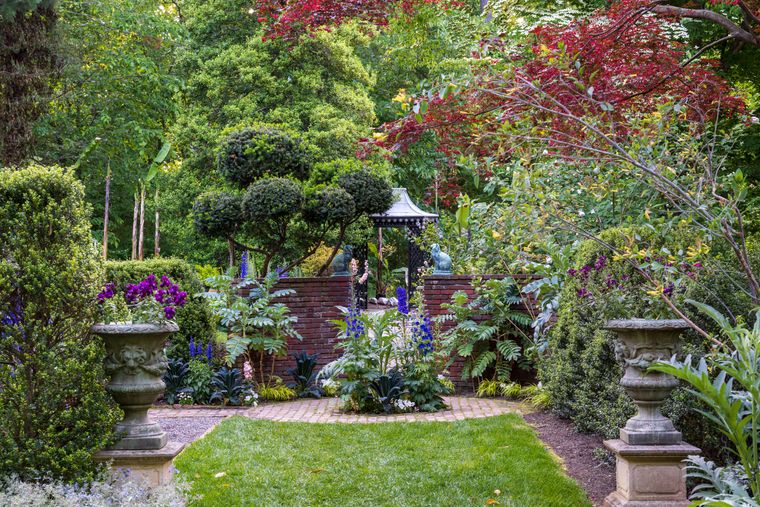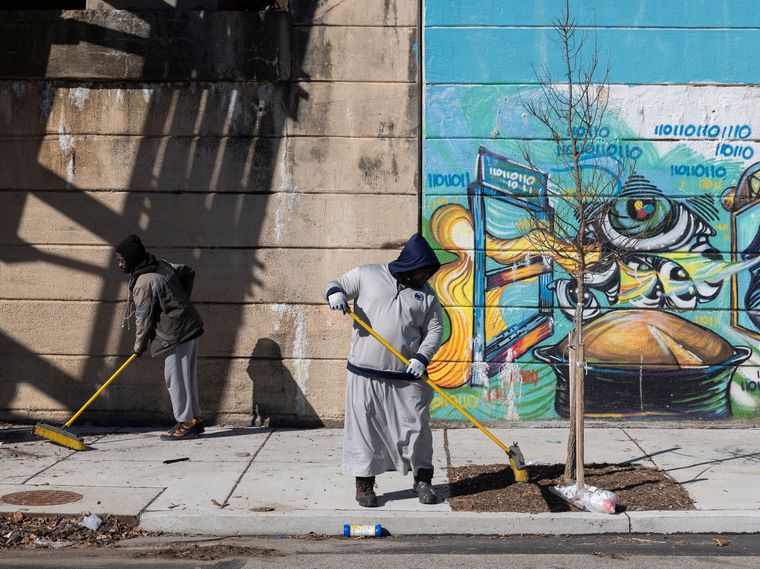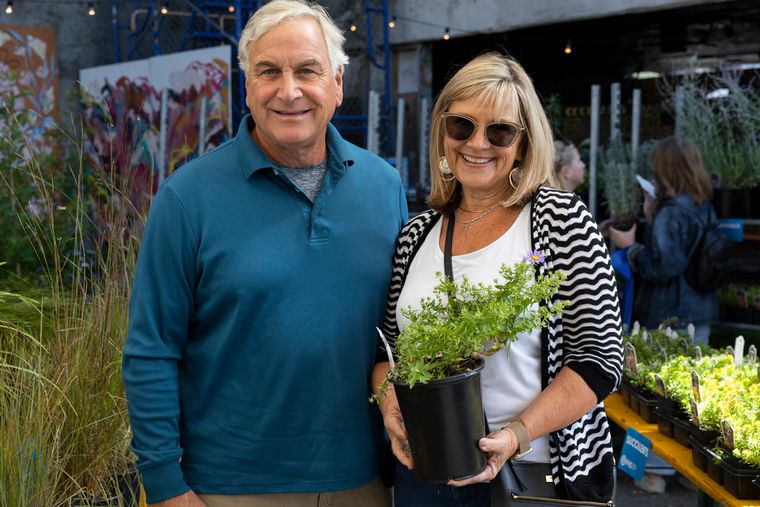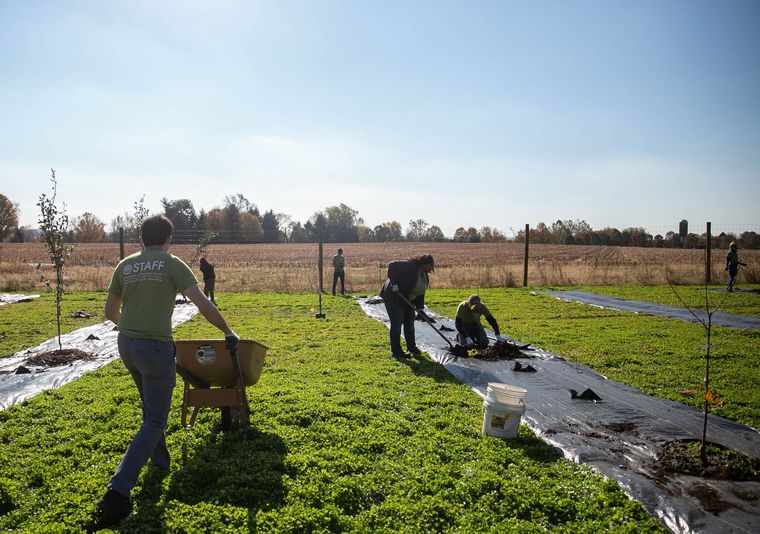



Bringing Bilingual Tree Tender Training to Hunting Park and Beyond
phs community & events

By Melissa O'Brien
When Gabriella Paez worked as an education and community development coordinator at Esperanza in North Philadelphia, she set out on a mission to improve the health and well-being of the largely Hispanic community by implementing the Hunting Park Neighborhood Strategic Plan 2022. Drafted in 2012 by Esperanza with the input of hundreds of residents, one of the main concerns highlighted in this plan was protecting and enhancing open spaces in the Hunting Park community (the plan boundaries include Roosevelt Boulevard to the North, Luzerne St. to the South, Front Street to the East, and 9th Street to the West).
At the time, tree canopy coverage in the area was extraordinarily low at only 3.9%. “It was very concerning back then because if you walked around Hunting Park, you barely saw any trees. And of course, that brought a lot of other problems with it,” says Gabriella. Trees make neighborhoods healthier and safer, so the lack of tree canopy in the area was contributing to higher temperatures and air pollution.
By partnering with TreePhilly, Gabriella and the Esperanza team were able to secure over 1,000 yard trees for the residents of Hunting Park and the surrounding areas. This program went a long way towards increasing tree canopy coverage in the area, but Gabriella recognized an opportunity to do even more, since most of the homes in Hunting Park are rowhomes with little to no front yard space. That’s when she connected with PHS Tree Tenders to discuss how to plant more trees on the community’s sidewalks.
“PHS didn't only take in the recommendation, but they definitely delivered, and they continue to serve the Hispanic community today, using that model.” -Gabriella Paez
Serving the Hispanic Community
Upon meeting with Mindy Maslin, PHS Tree Tenders Program Manager and program founder, Gabriella identified the need to break the language access barrier for the Hunting Park community. Within the plan boundaries, a more than 60% Hispanic population was prime to engage in the Tree Tenders program. “We needed to make sure that our neighbors have access to this training, and that means providing language access,” she says.
This initial conversation was the catalyst for Gabriella to partner with PHS to design the first bilingual Tree Tenders Basic Training in 2018. “I didn't expect for PHS to go above and beyond,” says Gabriella. “I brought to the table what was needed, and I am inspired and amazed by what PHS has done in the last couple of years to improve language access.”
The first-ever bilingual Tree Tenders training was hosted live at Esperanza and included an initial cohort of over 70 people, most of whom spoke only Spanish. “I'm super-duper excited because it didn't stay there,” says Gabriella. “It was not only PHS doing this one-time bilingual training, but that training has also served other neighborhoods, such as Fairhill.” Today, most of PHS’s virtual Tree Tenders trainings are hosted both in English and Spanish. “PHS didn't only take in the recommendation, but they definitely delivered, and they continue to serve the Hispanic community today, using that model,” says Gabriella.



Transforming the Health and Well-Being of Hunting Park
Gaining access to the Tree Tenders program has had a tangible impact on the physical and mental health and well-being of the residents in predominantly Hispanic communities such as Hunting Park. Not only are the trees improving the air quality in the neighborhood, they’re also improving the look of the blocks that have received the trees — which, in turn, has improved the mood of the people who live there. “One of the testimonies I've received from residents has to do with people who were depressed and never left their home,” says Gabriella. “After seeing the trees planted and how beautiful they look, they come out to the porch more, decorate and put flowers out there, and talk to their neighbors.”
Since 2018, the Hunting Park Tree Tenders group has planted over 170 trees in the area. Although there is still a lot of work to be done to reach the city’s goal of 30% tree canopy coverage, Gabriella is hopeful for the future of Hunting Park. “They may be baby trees today, but I know that 20 years down the road when people are walking down these streets, they're not going to feel like they're walking in a desert anymore,” she says. Another long-term benefit of planting trees in high-traffic areas is to create a more welcoming environment for consumers to shop and for a variety of businesses to thrive.
The Importance of Ownership
Today, PHS Tree Tenders continue to plant and care for trees in Hunting Park while actively engaging neighbors in the process. “The residents of Hunting Park are protective of their trees because they're the ones who are not only agreeing to have them planted, but they're the ones planting them and taking care of them,” says Gabriella. “PHS is different in the sense that it gives residents that power — to not only ask for the trees — but also to be the ones implementing these programs and transforming their neighborhoods themselves, which puts them in charge and makes all the difference.”
Sign up for the virtual bilingual Tree Tenders Winter Basic Training!


